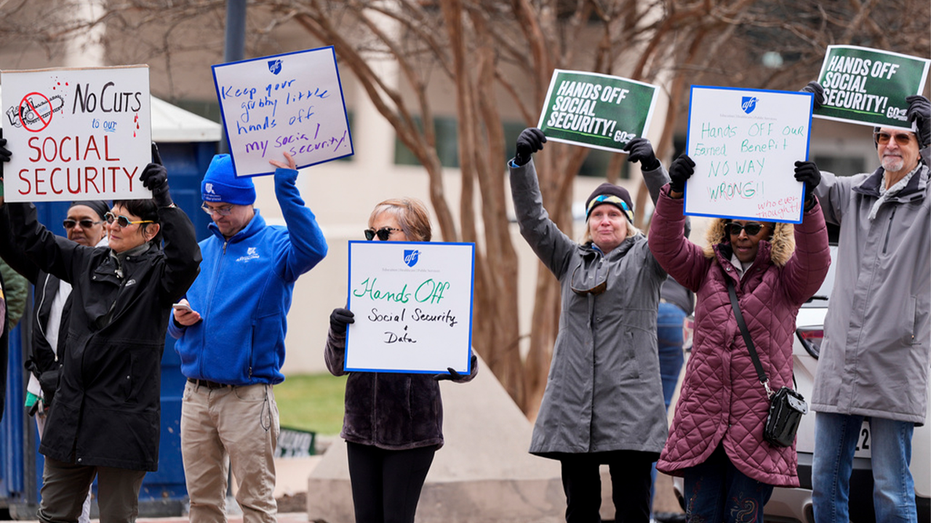Federal Judge Slams Brakes on DOGE's Access to Sensitive Social Security Data

Sarah Johnson
April 18, 2025
Brief
A federal judge blocks Elon Musk’s DOGE agency from accessing non-anonymized Social Security data, citing privacy concerns and ordering stricter safeguards on sensitive information.
A federal judge in Baltimore has hit pause on the Department of Government Efficiency's (DOGE) sweeping access to Americans' Social Security data, ordering a hard reset on who gets to see what.
U.S. District Judge Ellen Hollander, pointing to nearly a century of privacy tradition at the Social Security Administration (SSA), issued a preliminary injunction Thursday. DOGE, which is helmed by none other than billionaire Elon Musk, has been told to scrub all non-anonymized Social Security data acquired since January 20. Any software or code DOGE may have slipped into SSA's systems must be removed, and sharing that code is strictly off-limits for now.
The ruling doesn't throw the baby out with the bathwater, though. DOGE staff can still look at redacted or anonymized data—assuming they pass background checks and complete proper training. It’s almost like the judge is saying, "You want the keys to the vault? First, prove you can handle the combination."
Judge Hollander acknowledged DOGE’s stated aim to crack down on fraud and waste, noting that taxpayers deserve efficiency. "The objective to address fraud, waste, mismanagement, and bloat is laudable," she wrote, "and one that the American public presumably applauds and supports." But she drew a firm line at privacy, warning that the agency’s recent actions had "exposed a wide fissure in the foundation" of the SSA’s longstanding privacy standards.
The lawsuit, brought by labor unions and retirees, argues that DOGE's methods violate privacy laws and threaten sensitive information. In a recent Baltimore hearing, Judge Hollander grilled government attorneys about why DOGE needed "seemingly unfettered access" to so much personal data. "What is it we're doing that needs all of that information?" she pressed, suggesting anonymization could be more widely used.
Trump administration lawyers countered that anonymizing data would bog down anti-fraud efforts. Justice Department attorney Bradley Humphreys said the process would be "extremely burdensome," arguing DOGE’s access was in line with existing practices for agency staff and auditors. The plaintiffs, however, called DOGE’s approach "a sea change" in how sensitive government data is handled.
Skye Perryman, head of the legal group Democracy Forward, welcomed the ruling, saying it brings "significant relief for the millions of people who depend on the Social Security Administration to safeguard their most personal and sensitive information." For folks living off those Social Security checks, that probably feels like a sigh of relief after a rollercoaster week.
The order doesn’t affect ordinary SSA staffers, who can still access the data they need for their daily work. But if DOGE employees want in—at least for anonymized data—they’ll need to jump through the same hoops as everyone else.
Judge Hollander, who has become something of a regular in DOGE-related cases, spent much of the hearing probing how this situation differs from a similar Maryland case over DOGE’s access to other federal databases. In that older case, an appeals court had just cleared the way for DOGE to access more private data, so this latest injunction could end up in the higher courts as well. Considering the 4th Circuit’s recent track record, all eyes are on whether this firewall will hold.
Topics
Editor's Comments
Only in 2025 could a government agency called DOGE, run by Elon Musk, end up in court over Social Security data. I have to wonder if somewhere in the government, they're also arguing about meme stocks and crypto wallets. But in all seriousness, it’s wild to see how fast the line between tech disruption and personal privacy gets blurry—maybe someone should code a privacy meme for Congress next.
Like this article? Share it with your friends!
If you find this article interesting, feel free to share it with your friends!
Thank you for your support! Sharing is the greatest encouragement for us.



